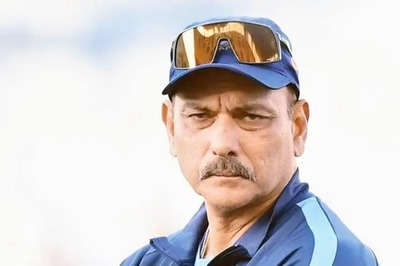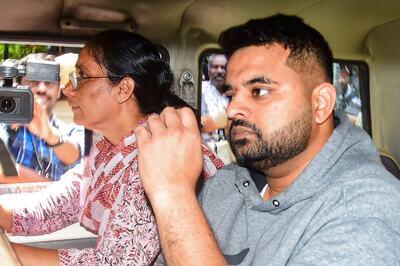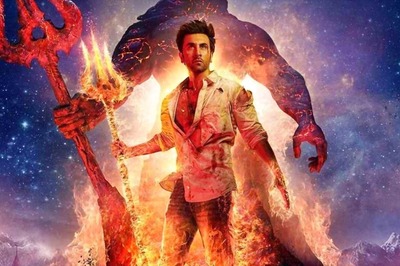
views
In a 1937 article, Rashtrapati, published in the Calcutta-based journal, Modern Review, Jawaharlal Nehru imputed to himself all the traits of a dictator and concluded that “we want no Caesars.” The original pronunciation of the Anglicised “Caesar” is “Kaiser,” meaning “despot,” “dictator,” etc. We all know how the world burned due to German Kaiserism, a bloody phenomenon which occurred during Nehru’s radioactive years in politics and public life. Nehru wrote this article under a pseudonym that reeks of irony: Chanakya.
Given some of the more shocking revelations from the overall Nehruvian crypt, we can conclude in hindsight that the aforementioned article is a study in classic narcissism. A vainglorious love letter he penned to himself. Here is how an excerpt reads: “Watch him again. There is a great procession and tens of thousands of persons surround his car and cheer him in an ecstasy of abandonment. He stands on the seat of the car, balancing himself rather well, straight and seemingly tall, like a god, serene and unmoved by the seething multitude. Suddenly there is that smile again, or even a merry laugh and the tension seems to break and the crowd laughs with him, not knowing what it is laughing at. He is godlike no longer but a human being claiming kinship and comradeship with the thousands who surround him and the crowd feels happy and friendly and takes him to its heart.”
“Is all this natural or the carefully thought out trickery of the public man? Perhaps it is both and long habit has become second nature now…With his seeming carelessness and insouciance, he performs on the public stage with consummate artistry. Whither is this going to lead him and the country?… These questions would be interesting in any event, for Jawaharlal is a personality which compels interest and attention… Men like Jawaharlal, with all their capacity for great and good work, are unsafe in democracy…A little twist and Jawaharlal might turn a dictator sweeping aside the paraphernalia of a slow-moving democracy… Jawaharlal cannot become a fascist. And yet he has all the makings of a dictator in him…with all his love of the crowd, intolerance of others and a certain contempt for the weak and the inefficient…”
“We have a right to expect good work from him in the future. Let us not spoil that and spoil him by too much adulation and praise. His conceit is already formidable. It must be checked. We want no Caesars.”
Reading this today feels surreal. But it is also a representative essay in which we can trace the psychological origins of the decadal Nehruvian abuse of Government machinery. The abuse was merely the consequence that flowed from such a psyche. In 1937, nobody in the Congress had even dreamed that India would get freedom in just a decade. Yet, here was Nehru anonymously glorifying himself in the third person and worrying that his self-professed greatness would transform him into a dictator. To put it bluntly, it appears that Nehru had convinced himself so early that he was born to rule, and not govern.
But if anybody qualifies for the title of dictator in recent Indian history, it is Sanjay Gandhi. Both Jawaharlal Nehru and Indira Gandhi couldn’t go the whole hog because they were constrained and were prudent enough to realise not to overstep these limits. The ex-Communist writer and intellectual, Philip Spratt — Nehru’s contemporary — has given perhaps the best assessment of Nehru as a shackled Communist dictator: “The figure in world politics who most resembles [Nehru] is [Fidel] Castro. Castro got into power on false pretences. i.e. as a liberator, not as a Communist, but within a year or so he had liquidated his opponents and built up the Communists so far that he was able to drop the mask. Nehru got into power on the same false pretences, i.e. as a liberator… and he has proceeded in the same direction, but far more cautiously. Castro succeeded Batista; Nehru succeeded Gandhi on the one hand, and the legalistic British regime on the other. The two legacies between them have cramped his Communist style. Nehru has sometimes sighed for a cadre such as Mao Tse-tung built up during the Long March. But such a cadre, while it might have enabled him to enforce Communism, would not have made it any more congenial to India…Communism remains wholly alien to this conservative, religious, individualistic, property-conscious, peasant-minded country.”
A timeless wisdom informs us that a dictator’s power is almost wholly derived from and sustained by his yes-men. Nehru adopted a three-pronged device during his early bid to consolidate power.
The first was to pack his inner circle with family, unvarnished sycophants and ideological comrades. To this list belong Vijayalakshmi Pandit, Brijmohan “Bijji” Koul, Maulana Abul Kalam Azad, VK Krishna Menon, Kidwai, et al.
The second was to expel any challengers to his power by using a time-tested tactic: humiliation. Some among these challengers had been his close friends who had helped him in difficult times. Others were light years ahead of him in eminence and accomplishment, a fact he knew better than others. The shameful episodes detailing how he heartlessly ejected C Rajagopalachari, Dr BR Ambedkar and John Mathai don’t make for easy reading even today.
The third was his trump card. Each time he found the heat unbearable — criticism from his cabinet members, the opposition, etc, — he held out the ultimatum of resignation. And it worked each time. Op-eds and fawning international media coverage would immediately materialise, with headlines like After Nehru, who? Who can Step into Nehru’s Shoes? and so on. How is this fundamentally different from similar media coverage that Rahul Gandhi keeps getting — as a saviour of democracy, as a warrior against authoritarianism, etc?
These yes-men drawn from varied cesspools and pursuing their own private agendas were only too aware of their importance if not indispensability to Nehru. And he let them run their little enterprises by feigning blindness, a fact that Spratt mentions in the same article: “An item of [Nehru’s] policy… is his tolerance of corruption… Nehru has the same bohemian attitude towards audit objections: they belong to the fussy bourgeois era of Gokhale and Gandhi… When the resolution on the socialistic pattern was passed at Avadi, an important Congressman compared it to Emperor Akbar’s Din Ilahi. Socialism, he said, is Nehru’s personal fad, which will quickly be forgotten when he passes from the scene. It seemed a shrewd judgement at the time, but it overlooked the attraction of socialism for a ruling party of hungry careerists.”
From the discussion so far, it is clear that it would be limiting to view the Congress misuse of power as being restricted only to harassment by official agencies.
To cite another random example, we have the foul hounding of one of India’s tallest historians, RC Majumdar. His only crime was his professed devotion to writing the full truth about Nehru and Gandhi’s roles in the freedom struggle. Majumdar’s stature was slandered and his career ruined. The witch hunt was frontally led by Maulana Azad and some high-ranking bureaucrats, a saga that Majumdar has himself recounted.
Naturally, the quality of yes-men in the post-Nehru years coarsened, and just as naturally, paved the path to the criminalisation of Indian politics. Now, the agencies were unleashed at whim to settle personal or political scores by individual legislators. It was no longer necessary for the hounding order to come from the very top.
The familiar argument that Indira Gandhi was primarily responsible for the destruction of democratic institutions is true only in a limited sense. Jawaharlal Nehru had already primed the field. She harvested the venomous crop.
The ideological, economic and policy side to the wrecking of the government machinery is a thread that is interwoven with this venal legacy. Nehru’s addiction to softcore Communism translated as intractable hatred for free enterprise, which obviously impoverished businesses. Which further meant that there was not enough money to go around. Which also meant an endless spiral of taxes. However, for the Congress, this translated into a paucity of funds to finance its poll campaigns. That was when the now-ubiquitous Brahmastra was deployed: threatening businesses with tax raids. The late Nani Palkhivala has given us the most lucid and most detailed treatises on this sick phenomenon in his masterly We the Nation and We the People. It is a miracle how India actually lifted itself up from this muck.
Even as recently as 2012-13, Arun Shourie had made a cryptic remark when the former CAG Vinod Rai was dragooned by the Congress-led UPA regime for exposing their serial skulduggeries. Shourie said that Rai had taken the Congress by surprise with his exposes because all the while they had thought, “yeh hamara aadmi hai” — he is our man. In other words, they viewed Vinod Rai as a traitor.
And so, when Amit Shah narrated his ordeal at the hands of — to borrow his words, “Chidambaram, Manmohan Singh, Sonia Gandhi and Rahul Gandhi,” it is clear that he was severely understating and downplaying the case. What the Congress has historically done is not abuse of power or misuse of agencies: it exercised quasi-dictatorship. The Emergency gave India its full taste.
Series Concluded
The author is the founder and chief editor, The Dharma Dispatch. Views expressed are personal.
Read all the Latest Opinions here



















Comments
0 comment